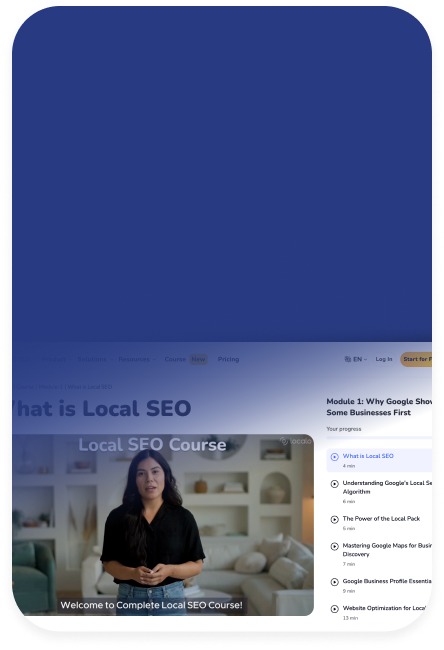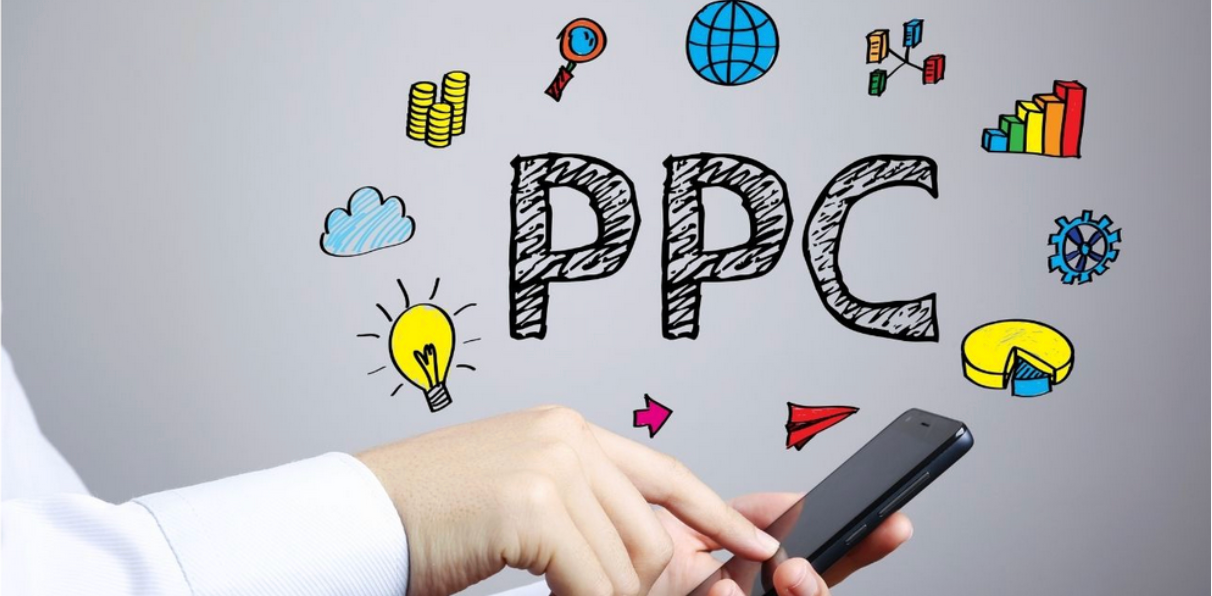
Ready to get more customers calling?
Take FREE Local SEO Course
Available now in English
PPC (Pay-Per-Click Advertising) - is an advertising model used in digital marketing where advertisers pay for each click on their ad. It is a popular method of promoting products, services or websites on various digital platforms.

How does this model work?
The PPC model involves placing ads in places where they can be seen by potential customers, such as search engine results, websites and social media platforms. Advertisers set a maximum amount they are willing to pay per ad click. Online advertising is then displayed to users through an auction system. A click on an ad generates a cost that the advertiser must pay.
PPC adverts can be displayed in a variety of places on the internet, depending on the platform chosen and the type of campaign. Here are some of the most popular places where PPC ads can be found:
- Search Results - these are displayed in search engine results pages such as Google, Bing and Yahoo. They are displayed to users who type in specific keywords related to the advertiser’s offering.
- Advertising Networks - they can also appear on websites that are part of advertising networks such as the Google Display Network. This includes a wide range of websites from blogs to news portals, where ads can appear as banners, text ads, interstitials or video ads.
- Social Media - Social media platforms such as Facebook, Instagram, LinkedIn ads, Twitter or Pinterest also offer PPC ads. These ads can be precisely targeted at users based on their demographics, interests, behaviour and other data.
- Mobile Apps - can also be displayed in mobile apps. Platforms such as Google AdMob and Facebook Audience Network allow advertisers to reach users through apps on their smartphones and tablets.
- YouTube - as part of Google Ads, PPC ads can also be displayed on YouTube. These can be video ads before the start of the video being watched (so-called pre-roll), display ads next to videos (display ads) or other formats such as ads that jump after a few seconds.
- Marketplaces and E-commerce Platforms - on platforms such as Amazon or eBay, advertisers can use PPC to promote their products directly on Google search or on competitor product pages.
- Partner sites - some companies also offer the possibility to display PPC ads on their partner sites. This is often done through special affiliate programmes, where third parties can earn money from displaying ads.
PPC marketing - costs
The cost of PPC depends on a number of factors, including industry competitiveness, quality of advertising, targeted demographic and keywords. Advertisers can set a daily budget, which allows them to control spending. The cost per click (CPC, Cost Per Click) can vary, depending on the competition for the ad space and the effectiveness of the ad itself.
Advantages of a PPC campaign
Here are the most important goals that companies typically have when deciding to launch a PPC campaign:
- Generating Website Traffic - a PPC campaign is effective in attracting traffic because it appears in key places (e.g. at the top of search engine results page), where it will be easily seen by potential customers looking for specific products or services.
- Generate Leads - they allow for precise targeting of ads, which increases the chances of reaching people interested in an offer and getting them to fill out a contact form, sign up for a newsletter or download educational material.
- Increase Sales - PPC is also often used to directly increase sales, especially in e-commerce shops.
- Building Brand Awareness - although PPC search engine advertising is usually associated with direct sales activities, it can also be used to build brand awareness.
- Promoting Events or Special Products - PPC campaigns are ideal for promoting time-limited events such as webinars, conferences, seasonal sales or new product launches.
- Testing New Markets - before a large-scale product launch, companies often run smaller PPC campaigns targeting specific demographic or geographic groups to gauge market response and potential interest.
- Conversion Optimisation - with tracking and analytics capabilities, PPC allow for continuous testing and optimisation of landing pages, offers and advertising messages.
Summary
Pay Per Click online advertising model offers a wide range of opportunities and can be tailored to achieve a variety of business objectives, from increasing sales to building brand awareness and testing new markets.
![What is PPC - Definition [Marketing Dictionary]](/assets/img/dictionary-background.webp)
